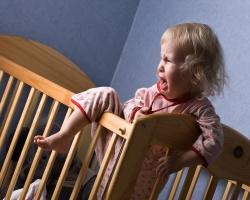Preschoolers with a parent away at war were more likely to show aggression than other young children in military families, according to the first published research on how the very young react to wartime deployment. (Story continues below.)
Discussion Starters:
1.) The story indicates the absence of a parent due to deployment causes preschoolers to behave more aggressively. Why do you think deployment, as opposed to absence for any other reason, would cause such behavior?
2.) What could a military spouse (or any other parent or care giver) do to curtail and redirect unpleasant behavior in children?
3.) Why do you think preschoolers particularly are affected by a parent’s deployment?
4.) Read
Hitting, biting and hyperactivity — “the behaviors parents really notice” — were more frequent when a parent was deployed, said lead author Dr. Molinda Chartrand, an active duty pediatrician in the U.S. Air Force.
The study, which was small and included fewer than 200 children, adds to previous evidence of the stress that deployment puts on families. Last year, a study of almost 1,800 Army families worldwide found that reports of child abuse and neglect were 42 percent higher during times when the soldier-parent was deployed.
This time, researchers looked at families living on a large Marine base in 2007. (The base wasn’t identified in the study.) Children, 3 to 5 years old, with a deployed parent scored an average of five points higher for behavior problems on two questionnaires widely used in child psychology than did the children whose Marine-parents weren’t deployed.
About 1 in 5 of the older preschoolers with a parent at war displayed troubling emotional or behavioral signs.




